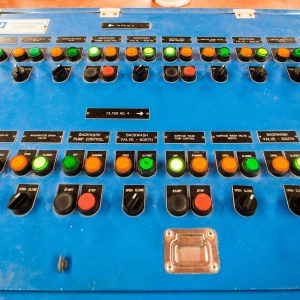The Stream, April 7: Bangladesh Hopes Ganges Barrage Will Solve Delta Water Problems
The Global Rundown
Bangladesh and India may soon move forward with plans to study a proposed $4 billion dam and reservoir project on the Ganges river. A study in France found that farmers could significantly cut pesticide use without jeopardizing production or profitability. In the United States, researchers in Iowa documented that neonicotinoid pesticides can persist in drinking water even after treatment. Methane gas that leaks from oil and gas wells could potentially disperse widely through groundwater systems, according to researchers in Canada. The United Nations’ green climate fund will finance eight projects globally, including hydropower projects in Tajikistan. Climate change is threatening rural water infrastructure in Alaska, and could make it more difficult to extend water and sewer service to those who still lack it.
“If you want real reduction in pesticide use, give the farmers the information about how to replace them.” — Nicolas Munier-Jolain, a researcher at France’s National Institute for Agricultural Research, on a new study that found 78 percent of farms would be equally or more profitable if they used fewer pesticides. (Guardian)
By The Numbers
8 projects Number awarded $755 million from the United Nations’ green climate fund this week, including hydropower projects in Tajikistan. Environmental and humanitarian groups, however, expressed disappointment that the fund did not finance a proposal to help Ethiopia mitigate droughts. Reuters
3,000 households Number in rural Alaska that still lack access to running water and sewer systems, while other communities face threats to their existing infrastructure from storms and erosion linked to climate change. KTOO
Science, Studies, And Reports
Neonicotinoid pesticides can persist in drinking water even after treatment, according to a study conducted by researchers in Iowa. While activated carbon filtration systems did work to remove the chemicals, treatment that did not involve those systems was largely ineffective, the study found. BBC News
Leaks of methane gas from oil and gas wells have the potential to move extensively through groundwater systems if they occur, according to a study published in the journal Nature Geoscience. “While drilling is better than ever before, leaky wells are still common and represent a large liability for the oil and gas industry,” concluded researchers at the University of Guelph in Canada. Science Daily
On The Radar
Bangladesh and India plan to complete a joint feasibility study for the Ganges Barrage, a proposed dam and reservoir that Bangladesh hopes will reduce salinity and increase water flows in the river delta. The estimated cost of the project is $4 billion, and it has been in the planning stages since 1972. The Third Pole
In context: Public resistance to water pollution and disruption in water supplies form a sizable portion of the case that citizens make against coal projects in Bangladesh.
A news correspondent for Circle of Blue based out of Hawaii. She writes The Stream, Circle of Blue’s daily digest of international water news trends. Her interests include food security, ecology and the Great Lakes.
Contact Codi Kozacek




